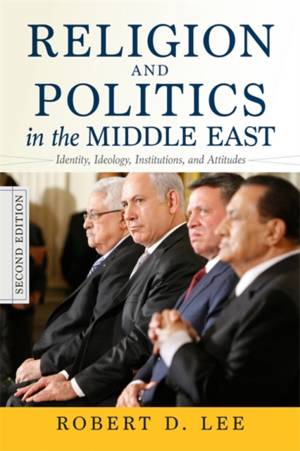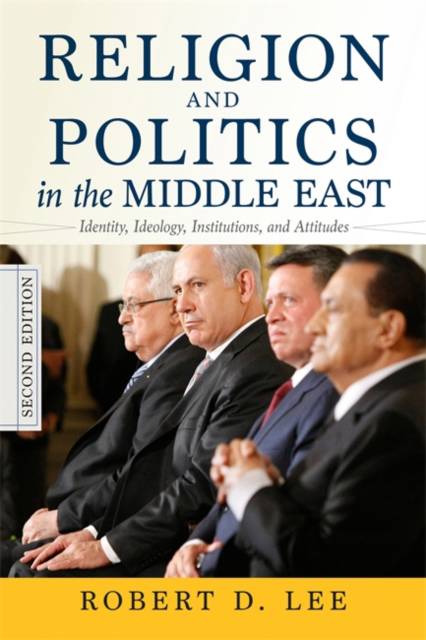
- Afhalen na 1 uur in een winkel met voorraad
- Gratis thuislevering in België vanaf € 30
- Ruim aanbod met 7 miljoen producten
- Afhalen na 1 uur in een winkel met voorraad
- Gratis thuislevering in België vanaf € 30
- Ruim aanbod met 7 miljoen producten
Zoeken
Religion and Politics in the Middle East
Identity, Ideology, Institutions, and Attitudes
Robert D Lee
Paperback | Engels
€ 90,45
+ 180 punten
Uitvoering
Omschrijving
This innovative book analyzes the relationship between religion and politics in the Middle East through a comparative study of five countries: Egypt, Israel, Turkey, Iran, and Saudi Arabia. Robert D. Lee examines each country in terms of four domains in which state and religion necessarily interact: national identity, ideology, institutions, and political culture. In each domain he considers contradictory hypotheses, some of them asserting that religion is a positive force for political development and others identifying it as an obstacle. Among the questions the book confronts: Is secularization a necessary prerequisite for democratic development? How is it and why is it that religion and politics are so deeply entangled in these five countries? And, why is it that all five countries differ so markedly in the way they identify themselves and use religion for political purposes? The book argues that the nature of religious organization and practice in the Middle East must be understood in the context of individual nation states. The second edition is updated throughout and includes an entirely new chapter discussing the political and religious climate in Saudi Arabia. Earlier introductory analysis has been condensed to make room for new material, and chronologies at the end of each chapter have been added to help students understand the broader context. The second edition of Religion and Politics in the Middle East is a robust addition to courses on the Middle East.
Specificaties
Betrokkenen
- Auteur(s):
- Uitgeverij:
Inhoud
- Aantal bladzijden:
- 378
- Taal:
- Engels
Eigenschappen
- Productcode (EAN):
- 9780813348735
- Verschijningsdatum:
- 30/07/2013
- Uitvoering:
- Paperback
- Formaat:
- Trade paperback (VS)
- Afmetingen:
- 152 mm x 226 mm
- Gewicht:
- 439 g

Alleen bij Standaard Boekhandel
+ 180 punten op je klantenkaart van Standaard Boekhandel
Beoordelingen
We publiceren alleen reviews die voldoen aan de voorwaarden voor reviews. Bekijk onze voorwaarden voor reviews.











